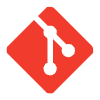Hire Web Developers: 12 Interview Questions That Reveal True Expertise

Hire Web Developers: 12 Interview Questions That Reveal True Expertise
What Is the Value of Targeted Interview Questions?
Essential Technical Topics for Web Developers
12 Questions That Reveal True Expertise
1. How Do You Optimize Page Load Times?
2. How Do You Ensure Cross-Browser Compatibility?
3. How Would You Explain an API to a Non-Technical Client?
4. What Is Your Process for Securing a Web Application?
5. How Do You Factor Accessibility Into Your Workflow?
6. What Is Your Approach to Debugging Complex Issues?
7. Which Frameworks or Libraries Have You Adapted to Recently?
8. How Do You Handle Version Control and Collaboration?
9. Can You Share a Time You Balanced Design Consistency With Tight Deadlines?
10. How Do You Integrate Client Feedback Without Sacrificing Project Scope?
11. How Do You Manage Continuous Integration (CI) in Your Projects?
12. Have You Worked on a Project With Remote or Distributed Teams?
Balancing Hard Skills and Interpersonal Skills
Tips for Evaluating Responses
FAQs About Hiring Web Developers
What questions should I ask a web developer for a freelance project?
How do I vet a developer’s portfolio when I’m not technical?
Are there red flags I should watch for during interviews?
What is a fair timeline for onboarding a web developer?
Moving Forward With a Skilled Web Developer
Hire Web Developers: 12 Interview Questions That Reveal True Expertise
“You’re not just hiring a dev. You’re hiring a mindset.”
What Is the Value of Targeted Interview Questions?
Essential Technical Topics for Web Developers
“If a developer says they just ‘minify JavaScript’ for performance, dig deeper.”
12 Questions That Reveal True Expertise
1. How Do You Optimize Page Load Times?
“If someone says they just ‘minify the CSS,’ you’re only hearing 5% of the story.”
2. How Do You Ensure Cross-Browser Compatibility?
3. How Would You Explain an API to a Non-Technical Client?
4. What Is Your Process for Securing a Web Application?
5. How Do You Factor Accessibility Into Your Workflow?
6. What Is Your Approach to Debugging Complex Issues?
“If debugging is the art of removing bugs, then programming must be the art of putting them in.” 🐛
7. Which Frameworks or Libraries Have You Adapted to Recently?
8. How Do You Handle Version Control and Collaboration?
9. Can You Share a Time You Balanced Design Consistency With Tight Deadlines?
10. How Do You Integrate Client Feedback Without Sacrificing Project Scope?
11. How Do You Manage Continuous Integration (CI) in Your Projects?
12. Have You Worked on a Project With Remote or Distributed Teams?
Balancing Hard Skills and Interpersonal Skills
“If a developer blames ‘bad requirements’ in every story, they’re telling you something—even if they don’t mean to.”
Tips for Evaluating Responses
“I used Google Lighthouse to score performance, then implemented lazy loading for images and split JavaScript bundles with dynamic imports. The result was a 40% reduction in load time on mobile.”
“If a dev says they ‘debug everything with console.log’ and nothing else, you’ve found their entire toolbox 🧰”
FAQs About Hiring Web Developers
What questions should I ask a web developer for a freelance project?
How do I vet a developer’s portfolio when I’m not technical?
“If every project in the portfolio is labeled ‘personal website,’ you’re not seeing real client work.”
Are there red flags I should watch for during interviews?
“If someone says they ‘always get it right the first time,’ that usually means they’ve never debugged under pressure.”
What is a fair timeline for onboarding a web developer?
Moving Forward With a Skilled Web Developer
“Two candidates can answer the same question. Only one of them actually lived it.”
Posted Apr 30, 2025
Hire Web Developers: 12 Interview Questions That Reveal True Expertise. Spot top talent with questions that test real-world skills and communication.






